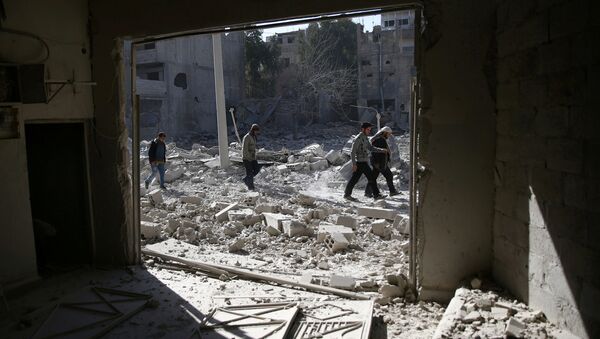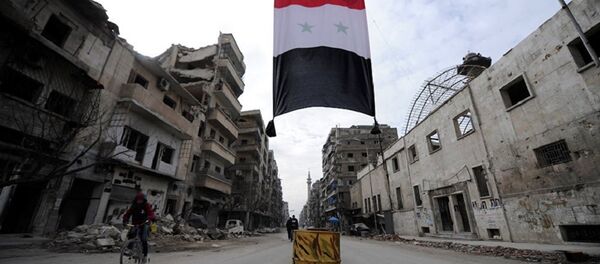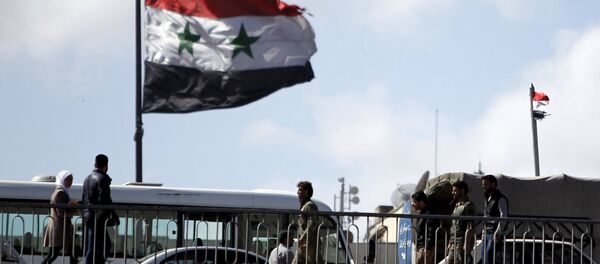The memorandum on these de-escalation zones took effect on May 6.
The Pentagon chief told journalists on Monday that the Russian plan poses many unanswered questions, including whether it would be effective.
He said that the possible impact of the plan on US-led fight against Daesh in the country is unclear yet. "Will it affect the fight against ISIS [Daesh]? I think the international community is united in the sense of wanting to see ISIS put on its back foot," the defense secretary said.
"Who is going to be ensuring they're safe? Who is signing up for it? Who is specifically to be kept out of them? All these details are to be worked out and we're engaged," Mattis said.
The Pentagon head was cautious enough not to answer directly a question on whether there is hope that the Russian plan will help end years-long violence in Syria.
"The devil is always in the details, right? So we have to look at the details, see if we can work them out, see if we think they're going to be effective," he continued.
The US owes it "to the situation there, the people there to at least examine it very, very carefully. All wars eventually come to an end. And we've been looking, for a long time, how to bring this one to an end," he concluded.
The agreement between Moscow, Tehran and Ankara presumes the cessation of airstrikes and combat actions between the Syrian Army and militants who have already joined or will join the ceasefire regime, according to Chief of the Russian General Staff's Main Operational Directorate Col. Gen. Sergei Rudskoy.
Interestingly, this is not the first time the US has been sidelined from Russian-backed efforts to help stop bloodshed in Syria after numerous failures of Syria ceasefire deals brokered previously by Moscow and the former US administration.
After Moscow-Ankara-Tehran negotiations on Syria, Putin announced on December 29, 2016, that the Syrian government and armed opposition groups had reached an agreement on a nationwide ceasefire in the country and on their readiness to start peace talks held later in the Kazakh capital of Astana. The so far most successful truce in Syria brokered by Russia and Turkey came into effect on December 30 and was later approved by the United Nations. Despite some violations on a daily basis, the ceasefire regime has been generally held.




